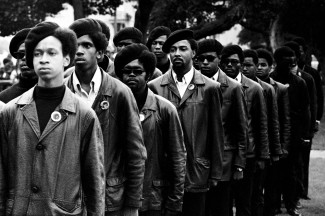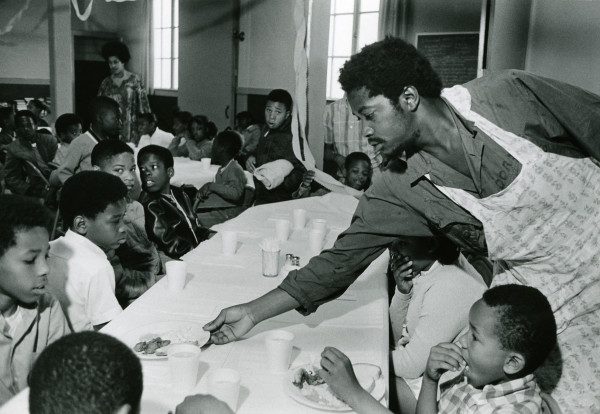REVIEW: ‘Black Panthers’ documentary charts emergence of political movement

The Black Panthers: Vanguard of the Revolution is a revealing documentary charting the emergence, triumphs and struggles of the influential and controversial Black Panther political movement of the 1960s and 1970s. Playing at New York City’s Film Forum, the movie offers a background on the time period and the main players among the party and its political enemies.
Stanley Nelson, an accomplished documentarian, offers a realistic portrait by utilizing archival footage of speeches and protests, plus present-day interviews with many former Panther members, attorneys and historians. The film is steeped in history with an eye for understanding the motivations behind the party’s development; the two-hour film largely steers clear of competing viewpoints, although some police officials are interviewed, and there are archives of J. Edgar Hoover’s thoughts on the Panthers. In fact, the evidence of Hoover and the Bureau’s stated goals against the Black Panthers serve as one of the most revealing parts of the film.
The soundtrack to the film, featuring several tunes with socially conscious lyrics, helps propel the narrative along. Montages never grow tiresome, and the iconic images of the era seem endless. Several important chapters in the party’s history are described: its initial days, its belief in armed protestors, its fraught relationship with the police, its battle with the FBI, its influential leaders and the style of its party members. A further elaboration on the earlier civil rights movement, including the nonviolent message of Dr. Martin Luther King Jr., may have helped the audience understand the different dimensions of political power some 50 years ago. There’s some discussion, but more would have been appreciated. Although, the documentary does feel the beneficiary of Nelson’s fine focus on the material.
The taped interviews center on the issues of justice, law and order, social change and the logistics of running a burgeoning political movement. Parallels to the 21st century will certainly grab the attention of audience members.

Among the leaders who figure prominently are Huey Newton, Bobby Seale, Eldridge and Kathleen Cleaver, and Fred Hampton. The documentary fully outlines the top ranks of the Black Panthers, and this lets the audience understand the party’s development and ultimate dissolution. Differences in opinion and the difficulty of keeping a global network connected led to several Panthers leaving. Some of the most interesting material involves the neighborhood work, including a free breakfast program, of several party members.
The lasting legacy of this documentary will be its wealth of archival footage, including still images, audio and video. The film places the Black Panthers in an historical context and includes several voices to describe the events that shaped their generation. There are few options for rebuttal, and perhaps too much time is spent on the high-profile drama of its leaders. There’s also footage of Ronald Reagan, then governor of California, from the archives, plus images of other Hollywood celebrities like Marlon Brando and Jane Fonda. However, Nelson is able to effectively capture the movement and the decisions that led to court cases, advancements, arrests, setbacks and regrets.
The Black Panthers: Vanguard of the Revolution is connected with PBS, and that seems a fitting home for the documentary. No matter one’s political beliefs or memories of the time period, the documentary fits into the PBS mission of presenting engaging, sometimes challenging films on American history. Film Forum audience members and other theatergoers will have the first chance to see, hear and learn of the social upheaval that grabbed headlines in the 1960s and 1970s.
By John Soltes / Publisher / John@HollywoodSoapbox.com
- The Black Panthers: Vanguard of the Revolution
- 2015
- Directed by Stanley Nelson
- Running time: 116 minutes
- Rating:





